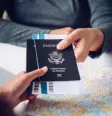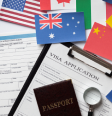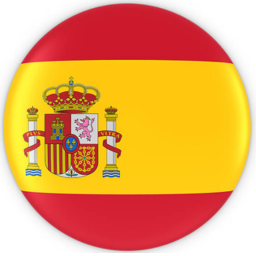Fill In The Required Form
We offer comprehensive employment services such as assistance with employer compliance.
Submit Your Original Documents
We offer comprehensive employment services such as assistance with employer compliance.
Get The Visa Resource Material
We offer comprehensive employment services such as assistance with employer compliance.
There are full service engage company is to provide solution for employees needs training manage the entire HR department for companies. We offer comprehensive employment services such as assistance with employer compliance.Our company is your strategic HR partner as instead of HR.
Necessary Documents
The necessary Docuements which are required to apply for any kind of Study Visa are as follow :
- To recent taken photo must be attached
- A valid passport
- Travel insurance policy
- Proof of accomodation
- Proof of financial means
- National id card.
Visa Question Related to Immigration Process
For the International Scholar: The pursuit of knowledge knows no bounds. A Student Visa offers ambitious learners the chance to attend renowned institutions worldwide, engage in cross-cultural exchanges, and acquire skills for a globalized workforce. It's more than a visa; it's a passage to becoming a global citizen.
A study visa is a type of visa that allows a foreign national to enter and stay in a country for the purpose of pursuing educational courses at recognized institutions, such as universities, colleges, or schools. It is usually granted for the duration of the course or program.
The application process varies by country but typically involves:
Receiving an acceptance letter from a recognized educational institution.
Submitting a visa application form along with required documents such as a valid passport, photographs, proof of funds, and proof of accommodation.
Attending an interview at the embassy or consulate, if required.
Paying the visa application fee.
Commonly required documents include:
A valid passport
Completed visa application form
Acceptance letter from a recognized educational institution
Proof of financial support (bank statements, scholarships, sponsorship letters)
Passport-sized photographs
Medical examination and health insurance (if required)
Proof of accommodation (e.g., dormitory booking, rental agreement)
Proof of language proficiency (e.g., TOEFL, IELTS) if required
Previous academic transcripts and certificates
Processing times vary by country and can range from a few weeks to several months. It is advisable to apply for a study visa well in advance of your intended start date to avoid delays.
Many countries allow international students to work part-time while studying, usually with certain restrictions, such as a maximum number of hours per week (e.g., 20 hours during term time). However, the rules vary by country, so it is important to check the specific conditions of your study visa.
Yes, most countries require proof that you have sufficient funds to cover your tuition fees, living expenses, and return travel costs. This can be demonstrated through bank statements, financial sponsorships, scholarships, or affidavits of support.
Many countries require international students to have valid health insurance that covers medical expenses during their stay. Some countries may require you to purchase specific insurance, while others allow you to choose your own plan.
Some countries require an interview as part of the study visa application process, while others do not. If an interview is required, it usually takes place at the embassy or consulate and involves questions about your study plans, financial status, and reasons for choosing the specific country or institution.
In many cases, yes. If your course duration increases or you wish to pursue further studies, you may apply for an extension of your study visa. The process for extending a study visa varies by country, so you should contact the relevant immigration authorities for guidance.
If you fail to meet the requirements of your study visa, such as maintaining full-time enrollment or making satisfactory academic progress, your visa may be revoked. This could result in you having to leave the country. It is important to understand and comply with the terms of your visa.
Some countries allow international students to bring their immediate family members (spouse and children) on a dependent visa. The rules and application process for dependent visas vary by country, and in most cases, dependents are not allowed to work unless they obtain separate work authorization.
Most study visas allow you to travel in and out of the country during the validity period, but you should always check the re-entry requirements before leaving. Some countries may require you to inform immigration authorities of your travel plans or obtain a re-entry permit.
Many countries require proof of proficiency in the language of instruction (e.g., English, French) as part of the study visa application. This is often demonstrated through standardized tests like TOEFL, IELTS, or other recognized exams.
Some countries allow students to change their visa status (e.g., to a work visa) after completing their studies, while others require you to return to your home country to apply for a different visa type. The process and eligibility criteria vary, so you should check with the relevant immigration authorities.
While a study visa itself does not grant permanent residency, some countries offer pathways to permanent residency for international students after they complete their studies. This often involves meeting certain criteria, such as securing a job, obtaining a work visa, or staying in the country for a specified period.
If your study visa application is denied, you may receive an explanation for the refusal. Depending on the country, you may be able to appeal the decision or reapply after addressing the reasons for the denial, such as providing additional documentation or clarification.
In many countries, you can change your school or program, but you may need to inform the immigration authorities and obtain approval. Changing schools or programs without notifying the relevant authorities can result in visa violations.
If your study visa is due to expire before you finish your course, you must apply for a visa extension. It's important to start this process well in advance to avoid any interruptions to your studies or risk of overstaying your visa.














